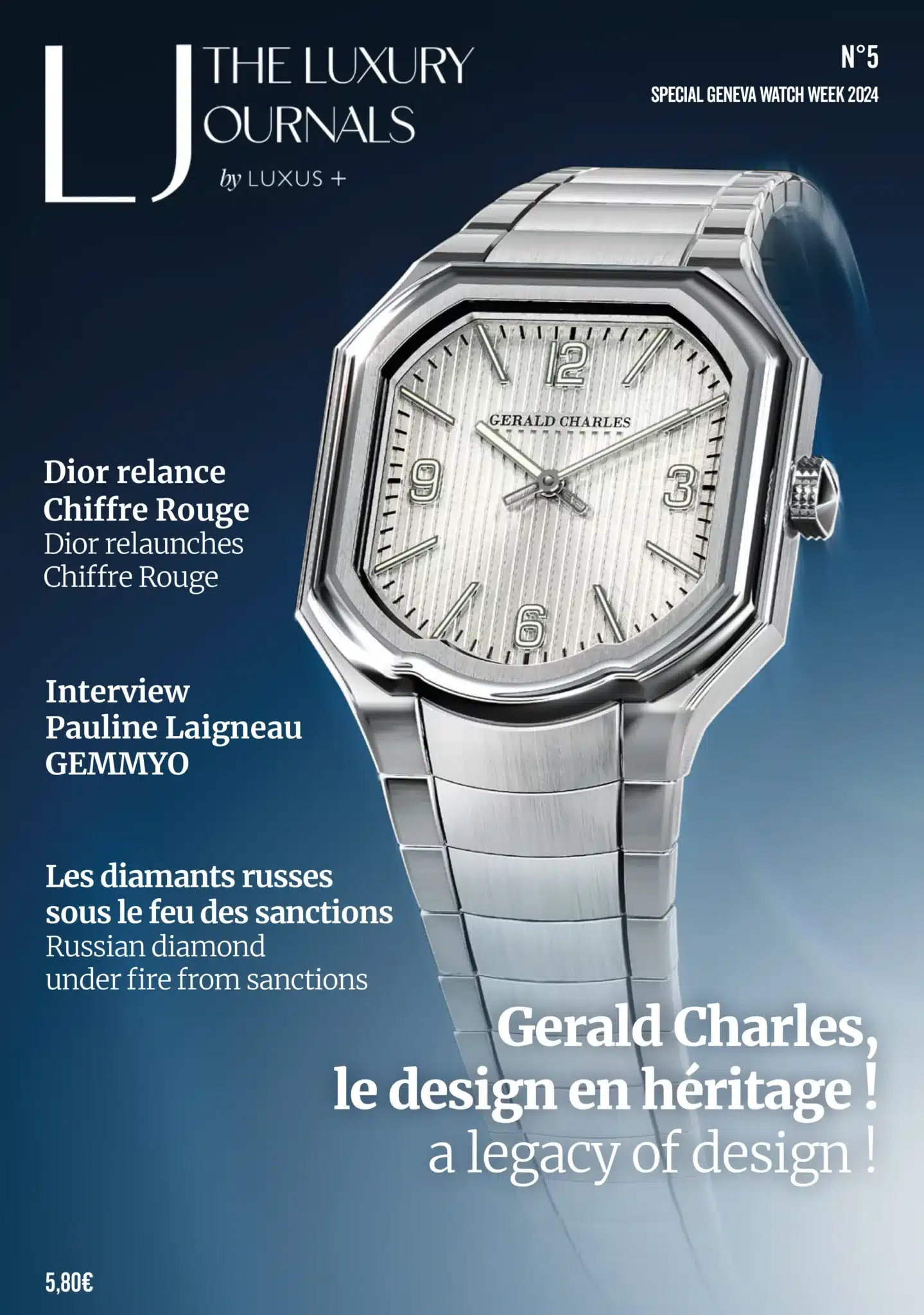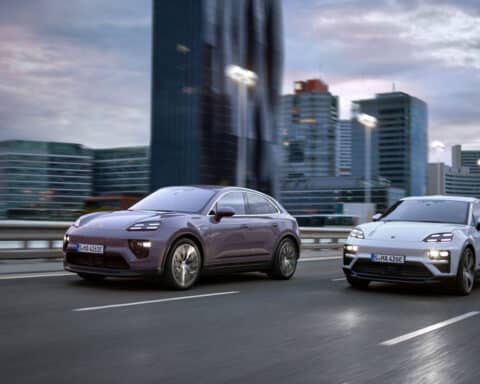[vc_row njt-role=”people-in-the-roles” njt-role-user-roles=”administrator,editor,author,armember”][vc_column][vc_column_text]
After the announcement of the end of thermal engines from 2035, eight European countries, led by Italy, are still fighting against the EU’s proposed standards. The position is not unanimous, pitting industrial lobbies against environmental advocates.
Giorgia Meloni’s nationalist government found itself in trouble during its unsuccessful fight against a ban on internal combustion engines in new cars from 2035. Now that same government is leading a rebellion in Europe against Brussels’ proposals to tighten car pollution standards.
A common front of eight European countries, including Italy and France, has formed against a future standard, called Euro 7, which tightens the conditions for testing vehicle emissions and should apply from 2025.
“Italy is leading the way, our positions are more and more widely shared”, said Enterprise Minister Adolfo Urso on Monday, a staunch defender of the national industry.
A view widely shared by Transport Minister Matteo Salvini, who considers that the EU proposal “is clearly wrong and not even useful from an environmental point of view”. He calls for a “blocking majority” to slow down this project, which is considered too costly by the automotive industry. Matteo Salvini, head of the far-right League party, had already led the charge against the extinction of internal combustion engines in 2035, deemed “a folly” that would “destroy thousands of jobs for Italian workers”, to the benefit of China, ahead of the electric vehicles.
A few months ago, Germany had also threatened to block this measure of the end of thermal engines. Brussels opened the way for synthetic fuels in March, but did not give in to Rome’s request to authorize biofuels to extend the life of internal combustion engines.
According to experts, the technology of synthetic fuels, which remains controversial and under development, would only concern a minority of luxury vehicles, such as those of Ferrari. The latter welcomed this concession from Brussels.
Pressure from an “industrial lobby
However, a discreet front fears that this refusal to adhere to European standards will harm the country.
In Italy, “environmental and climate issues are always relegated to the background”, under the pressure of a “strong industrial lobby” in the automotive and energy sectors, deplores an official of Greenpeace Italy, Federico Spadini. “None of the governments of recent years has been up to the environmental challenges. Italy has unfortunately not made a name for itself in Europe as a climate champion.”
For him, “it is certain that with the Meloni government, the situation has deteriorated.”
Italy, which ranks last in Europe, saw a 26.9% drop in electric vehicle sales in 2022, and their market share reached only 3.7%, compared to an average of 12.1% in the European Union. Incentives to purchase zero-emission vehicles have proven ineffective.
“There is no enthusiasm for electric cars in Italy. The offer is meager, with only one model made by the national manufacturer Fiat”, notes analyst Felipe Munoz of Jato Dynamics. “Purchasing power is not very high, people can’t afford expensive electric cars. So demand is low, unlike in the Nordic countries.
An opinion shared by the CEO of Italian truck manufacturer Iveco, Gerrit Marx. “We risk turning into a big Cuba, with very old cars that will continue to run for many years, because part of the population will not be able to afford an electric model”, he fears.
Significant delay
In 2022, Italy had nearly 270,000 direct or indirect employees in the automotive industry, which accounts for 5.2% of GDP. According to Clepa, the European association of automotive suppliers, the transition to exclusively electric propulsion could lead to a loss of more than 60,000 jobs in Italy by 2035, just in the supplier sector.
“Italy no longer has a large automotive industry, since the absorption of Fiat by Stellantis in 2021, but it is still important in terms of components, which are all geared toward traditional engines”, says Lorenzo Codogno, former chief economist at the Italian Treasury.
Beyond this debate, unions and the government recognize that Italy is behind in the process of vehicle electrification.
“If the endothermic engine disappears overnight, we are not yet in a position to go all-electric”, says Alberto Pastorello, regional secretary of the Uilm union.
“We are extremely late, in Italy there are only 36,000 electric charging stations compared to 90,000 in Holland”, admitted Minister Adolfo Urso.
Read also >EU climate plan: The end of combustion engines in 2035 approved by the 27
Featured photo : © Press[/vc_column_text][/vc_column][/vc_row][vc_row njt-role=”not-logged-in”][vc_column][vc_column_text]
After the announcement of the end of thermal engines from 2035, eight European countries, led by Italy, are still fighting against the EU’s proposed standards. The position is not unanimous, pitting industrial lobbies against environmental advocates.
Giorgia Meloni’s nationalist government found itself in trouble during its unsuccessful fight against a ban on internal combustion engines in new cars from 2035. Now that same government is leading a rebellion in Europe against Brussels’ proposals to tighten car pollution standards.
A common front of eight European countries, including Italy and France, has formed against a future standard, called Euro 7, which tightens the conditions for testing vehicle emissions and should apply from 2025.
“Italy is leading the way, our positions are more and more widely shared”, said Enterprise Minister Adolfo Urso on Monday, a staunch defender of the national industry.
A view widely shared by Transport Minister Matteo Salvini, who considers that the EU proposal “is clearly wrong and not even useful from an environmental point of view”. He calls for a “blocking majority” to slow down this project, which is considered too costly by the automotive industry. Matteo Salvini, head of the far-right League party, had already led the charge against the extinction of internal combustion engines in 2035, deemed “a folly” that would “destroy thousands of jobs for Italian workers”, to the benefit of China, ahead of the electric vehicles.
A few months ago, Germany had also threatened to block this measure of the end of thermal engines. Brussels opened the way for synthetic fuels in March, but did not give in to Rome’s request to authorize biofuels to extend the life of internal combustion engines.
According to experts, the technology of synthetic fuels, which remains controversial and under development, would only concern a minority of luxury vehicles, such as those of Ferrari. The latter welcomed this concession from Brussels.
Pressure from an “industrial lobby
However, a discreet front fears that this refusal to adhere to European standards will harm the country.
In Italy, “environmental and climate issues are always relegated to the background”, under the pressure of a “strong industrial lobby” in the automotive and energy sectors, deplores an official of Greenpeace Italy, Federico Spadini. “None of the governments of recent years has been up to the environmental challenges. Italy has unfortunately not made a name for itself in Europe as a climate champion.”
For him, “it is certain that with the Meloni government, the situation has deteriorated.”
[…][/vc_column_text][vc_cta h2=”This article is reserved for subscribers.” h2_font_container=”tag:h2|font_size:16|text_align:left” h2_use_theme_fonts=”yes” h4=”Subscribe now !” h4_font_container=”tag:h2|font_size:32|text_align:left|line_height:bas” h4_use_theme_fonts=”yes” txt_align=”center” color=”black” add_button=”right” btn_title=”I SUBSCRIBE !” btn_color=”danger” btn_size=”lg” btn_align=”center” use_custom_fonts_h2=”true” use_custom_fonts_h4=”true” btn_button_block=”true” btn_custom_onclick=”true” btn_link=”url:https%3A%2F%2Fluxus-plus.com%2Fen%2Fsubscriptions-and-newsletter-special-offer-valid-until-september-30-2020-2-2%2F”]Get unlimited access to all articles and live a new reading experience, preview contents, exclusive newsletters…
Already have an account ? Please log in.[/vc_cta][vc_column_text]Featured photo : © Press [/vc_column_text][/vc_column][/vc_row][vc_row njt-role=”people-in-the-roles” njt-role-user-roles=”subscriber,customer”][vc_column][vc_column_text]
After the announcement of the end of thermal engines from 2035, eight European countries, led by Italy, are still fighting against the EU’s proposed standards. The position is not unanimous, pitting industrial lobbies against environmental advocates.
Giorgia Meloni’s nationalist government found itself in trouble during its unsuccessful fight against a ban on internal combustion engines in new cars from 2035. Now that same government is leading a rebellion in Europe against Brussels’ proposals to tighten car pollution standards.
A common front of eight European countries, including Italy and France, has formed against a future standard, called Euro 7, which tightens the conditions for testing vehicle emissions and should apply from 2025.
“Italy is leading the way, our positions are more and more widely shared”, said Enterprise Minister Adolfo Urso on Monday, a staunch defender of the national industry.
A view widely shared by Transport Minister Matteo Salvini, who considers that the EU proposal “is clearly wrong and not even useful from an environmental point of view”. He calls for a “blocking majority” to slow down this project, which is considered too costly by the automotive industry. Matteo Salvini, head of the far-right League party, had already led the charge against the extinction of internal combustion engines in 2035, deemed “a folly” that would “destroy thousands of jobs for Italian workers”, to the benefit of China, ahead of the electric vehicles.
A few months ago, Germany had also threatened to block this measure of the end of thermal engines. Brussels opened the way for synthetic fuels in March, but did not give in to Rome’s request to authorize biofuels to extend the life of internal combustion engines.
According to experts, the technology of synthetic fuels, which remains controversial and under development, would only concern a minority of luxury vehicles, such as those of Ferrari. The latter welcomed this concession from Brussels.
Pressure from an “industrial lobby
However, a discreet front fears that this refusal to adhere to European standards will harm the country.
In Italy, “environmental and climate issues are always relegated to the background”, under the pressure of a “strong industrial lobby” in the automotive and energy sectors, deplores an official of Greenpeace Italy, Federico Spadini. “None of the governments of recent years has been up to the environmental challenges. Italy has unfortunately not made a name for itself in Europe as a climate champion.”
For him, “it is certain that with the Meloni government, the situation has deteriorated.”
[…][/vc_column_text][vc_cta h2=”This article is reserved for subscribers.” h2_font_container=”tag:h2|font_size:16|text_align:left” h2_use_theme_fonts=”yes” h4=”Subscribe now !” h4_font_container=”tag:h2|font_size:32|text_align:left|line_height:bas” h4_use_theme_fonts=”yes” txt_align=”center” color=”black” add_button=”right” btn_title=”I SUBSCRIBE !” btn_color=”danger” btn_size=”lg” btn_align=”center” use_custom_fonts_h2=”true” use_custom_fonts_h4=”true” btn_button_block=”true” btn_custom_onclick=”true” btn_link=”url:https%3A%2F%2Fluxus-plus.com%2Fen%2Fsubscriptions-and-newsletter-special-offer-valid-until-september-30-2020-2-2%2F”]Get unlimited access to all articles and live a new reading experience, preview contents, exclusive newsletters…
Already have an account ? Please log in.[/vc_cta][vc_column_text]Featured photo : © Press [/vc_column_text][/vc_column][/vc_row][vc_row njt-role=”people-in-the-roles” njt-role-user-roles=”subscriber,customer”][vc_column][vc_column_text]






























